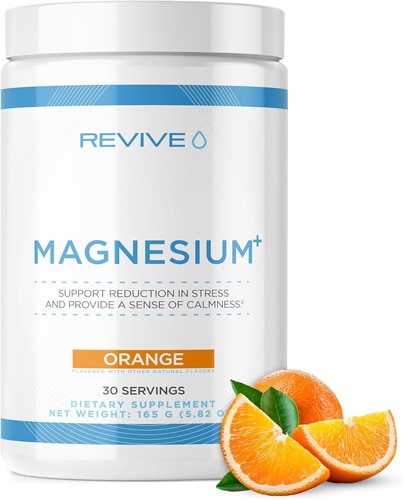[vc_row][vc_column][vc_column_text]From “cortisol face” to “Ozempic face,” social media is constantly alive with catchy phrases that capture the stressors and medications that can affect our looks, confidence and comfort.
But there’s another, less recognizable facial issue that doesn’t get nearly enough ink or attention:
Facial tension, a condition in which facial muscles remain fully or partly contracted—whether it’s a drawn-out frown from concentrating for hours on end or a clenched jaw from psychological angst.

While it may seem innocuous—occasionally frowning or clenching our teeth is part and parcel of simply existing in our modern, fast-paced world—facial tension can contribute to a host of complications.
Below, we’ll delve into facial tension and its most common culprits. We’ll also map out 5 savvy strategies for nipping it in the bud so that you can maintain your ease and self-assurance.
What is facial tension?
Facial tension is precisely as it sounds: it’s a catch-all description used to characterize tight facial muscles. Some may experience tension and the aches and pains that often arrive with it in their jaw, neck, and shoulders. Others may feel facial tension most profoundly in their cheeks or temples. And although it may be as prevalent as biting your nails or nibbling on your lips, it may be the primary reason you’re not feeling exactly
well.
What causes facial tension?
When you think of your face (or a face, period), you might think of the features that define it: your lips, the slope of your nose, the arch of your eyebrows. But muscles comprise its shape and form—30 to 40 muscles on each side of your face, that is. These muscles are also exceedingly important for all of your facial functions, such as chewing, squinting in the sunlight, frowning, raising your eyebrows, scrunching up your lips, and, of course,
smiling.
Like all muscles, they’re prone to tensing up at specific times, or
all of the time. This may be prompted by:
Psychological stress
Stress may be necessary for many reasons, such as completing a deadline in time or meeting the demands of daily life. And yet, it’s certainly no secret that both acute and chronic stress can take a toll on every system in your body, including your
digestive and endocrine systems (indeed, the latter causes the “cortisol face” mentioned above by generating the production of what’s known as “the stress hormone”).
Your musculoskeletal system is also sensitive to stress. Whether you’re faced with a sudden danger like avoiding a car accident or caring for a terminally ill family member, your body naturally goes into
flight or fight mode—an evolutionary, physiological response that, put simply, preps your body to either go to battle or flee. This releases a cascade of hormones that forces your muscles to tense up as a way to ward off injury and pain.
The muscles in your face are just as susceptible as your shoulders to tensing up. For some, this may be a momentary deep frown when they’re struggling to find solution to a problem. For those whose stress levels are unrelenting, or who have anxiety, facial tension may persist and lead to repercussions—a topic we’ll turn our attention to below.
Physical trauma
It ought to go without saying that some forms of physical trauma may also cause facial tension, particularly if they’re associated with the face, jaw, neck or shoulders. In fact, some experts indicate that accidents, falls and injuries that occurred years earlier may cause fascial changes that result in aches, pains and tension later on in life. (Think, for example, of whiplash, or hitting your head while getting out of the car.)
Poor posture
In a world where the vast majority of us use a computer or smartphone, either recreationally or professionally, it may come as no surprise that
poor posture is downright
rampant.
Tech neck aside, driving for long periods, binge-watching
Kaos, wearing unsupportive footwear, carrying a heavy backpack or purse and living a
sedentary lifestyle can all lead to less-than-stellar posture. This directly influences facial and jaw tension, in part by impacting nerves at the back of your skull that radiate to your jaw and face.
Temporomandibular joint (TMJ) disorders
A clenched jaw is one of the most telltale signs of both immediate and consistent stress. Performed (albeit unknowingly) over time, and it may result in facial tautness, tension and pain or temporomandibular (TMJ) disorders—a broad term used to describe long-lasting jaw pain.
Trigeminal neuralgia
Also known as “tic douloureux,”
trigeminal neuralgia is a nerve condition that affects the trigeminal nerve—a large cranial nerve with three main branches that impact the forehead, scalp, lips, cheeks and lower jaw. Distinguished by facial tension, pain, numbness, tingling and/or a dull ache, it can make daily living nearly unbearable.
What are the symptoms of facial tension?
The funny thing about tension is that it’s barely detectable when you’re in the throes of it. Nonetheless, you may experience:
- Chronic pain
- Headaches (either ongoing or episodic)
- Migraines
- A sense of tightness across the back of your head, forehead, and the sides of your head
Slyer, seeming unrelated symptoms may also co-occur with facial tension. Generally speaking, these include:
- Facial reddening
- Tingling
- Lip damage (from that aforementioned lip-chewing)
You might be asking: Why would facial tension provoke face reddening—or what’s frequently called flushing? This is believed to occur because anxiety causes the blood vessels in the face to dilate. The good news is that it’s often temporary.
Other side effects of facial tension, however, can be more uncomfortable and enduring. Let’s examine.
The complications of facial tension
If you have your physical health and stress levels under control, chances are whatever facial tension you experience will ease off—literally—on its own.
That said, if it fails to cease, you may experience:
What’s more, untreated facial tension may exacerbate pre-existing conditions, such as sinus problems and migraines.
How can you relieve facial tension?
To mitigate facial tension and the discomfort it provokes, you should first identify its root cause and, in some cases, work alongside a professional (such as an orofacial pain specialist for TMJ disorder, or a psychotherapist for generalized anxiety disorder).
In the meantime, you may want to try these 5 home remedies:
1. Consider the placement of your tongue
Sound odd? Think again. Stress and other complications can compel you to hold onto tension in your masseter muscles (or the large muscles at the corners of your jaw). This may result in increased tightness around your temples and life-interrupting tension headaches.
One way to release this oh-so-common problem is to zero in on your tongue posture, or
how your tongue sits in your mouth when you’re not speaking, eating or drinking. Crucially, your tongue should be pressed flat against the roof of your mouth, a “pose” you can accomplish by making an “ng” sound. Doing so raises your jaw a touch and separates your lower and upper teeth just slightly. This forces muscles in your cheeks to snap into action, thus taking the burden out of your masseter muscles—and potentially providing you with a much-needed respite.
2. Embrace deep breathing exercises
Deep breathing may be one of the most ubiquitous suggestions but sometimes the simplest solutions are, in fact, the most effective. Keying in on your breathing helps soothe your nerves and temper that instinctual fight-or-flight reaction that’s part of our DNA. As a result, you may find your face, jaw, neck and shoulders release—and score a more relaxed and youthful appearance in the process.
One to try, particularly when you’re feeling overwhelmed?
Nadisshodhana pranayama, or alternate nostril breathing. The very act of homing in on which “channel” you’re using to breathe, and retaining your breath throughout, may induce calm.
3, Commit to neck stretches
Research reveals that
neck pain causes TMJ (and related facial tension) a stunning 70 percent of the time. The answer? Dedicating part or even parts of your day to stretching your neck, especially if you have a position that calls for multiple hours of staring at a screen.
In addition to simple head rolls, supported
matsyasana, or fish pose, offers a delicious “counter” to tech neck by opening your chest and neck.
Simply rest supine on the floor or a yoga mat, and place a foam block, bolster, or rolled up towel at the bottom of your scapula (right where your bra strap may be). Place another block or form of support at its lowest level underneath the back of your neck, and hold for several breaths.
4. Alternate your spine
Sitting or standing for long periods of time can wreak havoc on your spine and all that connects to it—including your face. To that end, readjust your posture roughly every 30 minutes, whether that’s standing up for a quick walk while you’re at work, resting for a few minutes in a comfy seat after gardening or switching the cross of your legs.
5. Navigate stress with care
Given that stress is one of the most common causes of facial tension, learning to manage yours is fundamental to your serenity and overall wellness.
Coping strategies run the gamut from supplementing with
magnesium and/or an adaptogen like
Rhodiola rosea to going for a long walk in nature. The trick is to find relaxation methods that work for
you. This may help ensure that the only facial muscles you flex are those that are needed for the best kind of tension of all: Smiling.[/vc_column_text][/vc_column][/vc_row][vc_row][vc_column][vc_text_separator title="Featured Products" border_width="2"][vc_row_inner equal_height="yes" content_placement="middle" gap="35"][vc_column_inner width="1/3"][vc_single_image image="178201" img_size="full" alignment="center" onclick="custom_link" img_link_target="_blank" css=".vc_custom_1726928996757{padding-right: 7% !important;padding-left: 7% !important;}" link="https://www.vitacost.com/lone-star-botanicals-organic-ashwagandha-powder"][/vc_column_inner][vc_column_inner width="1/3"][vc_single_image image="178202" img_size="full" alignment="center" onclick="custom_link" img_link_target="_blank" css=".vc_custom_1726929009144{padding-right: 7% !important;padding-left: 7% !important;}" link="https://www.vitacost.com/yogi-organic-blueberry-sage-stress-relief-tea"][/vc_column_inner][vc_column_inner width="1/3"][vc_single_image image="178203" img_size="full" alignment="center" onclick="custom_link" img_link_target="_blank" css=".vc_custom_1726929024172{padding-right: 7% !important;padding-left: 7% !important;}" link="https://www.vitacost.com/revive-md-magnesium"][/vc_column_inner][/vc_row_inner][/vc_column][/vc_row]
 While it may seem innocuous—occasionally frowning or clenching our teeth is part and parcel of simply existing in our modern, fast-paced world—facial tension can contribute to a host of complications.
Below, we’ll delve into facial tension and its most common culprits. We’ll also map out 5 savvy strategies for nipping it in the bud so that you can maintain your ease and self-assurance.
While it may seem innocuous—occasionally frowning or clenching our teeth is part and parcel of simply existing in our modern, fast-paced world—facial tension can contribute to a host of complications.
Below, we’ll delve into facial tension and its most common culprits. We’ll also map out 5 savvy strategies for nipping it in the bud so that you can maintain your ease and self-assurance.



